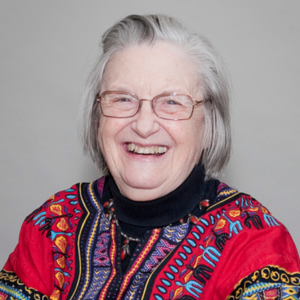Elinor Ostrom (1933-2012) was the Arthur F. Bentley Professor of Political Science and Professor of Public and Environmental Affairs at Indiana University and the 2009 recipient of the Nobel Memorial Prize in Economic Science. She served as the Co-Director for the Center for the Study of Institutions, Population, and Environmental Change. The Royal Swedish Academy of Sciences cited Professor Ostrom “for her analysis of economic governance” and how common property could be successfully managed by groups using it. Her groundbreaking work on natural resource governance was presented in her 1990 book Governing the Commons: The Evolution of Institutions for Collective Action, in which she countered the conventional wisdom that the best arrangement for managing common-pool resources is either privatization or government control. Rather, her research has shown that principles such as maintaining clearly defined boundaries and collective efforts to monitor inappropriate behavior could result in successful management of common-pool resources, such as watersheds, irrigation systems, and fishing grounds. Her study of irrigation in Nepal later showed that farmer-managed systems tended to be superior to government-managed systems and in more recent years she has used remote satellite sensing, among other tools, to examine how different management systems affect forestry resources.
Dr. Ostrom is also recognized for co-founding an institution in 1973 that has shaped the careers of hundreds of social scientists: Indiana University’s Workshop in Political Theory and Policy Analysis. Under her direction and that of Vincent Ostrom, the Workshop has served as a supportive center for the coordination of long-term cross-disciplinary policy projects. Today, the Workshop attracts scholars in a wide variety of fields and has developed an international network of scholars and practitioners, including ties to the Center for Interdisciplinary Research in Bielefeld, Germany and the Beijer Institute in Stockholm, Sweden. Dr. Ostrom was also Founding Director of the Center for the Study of Institutional Diversity at Arizona State University. In addition to Governing the Commons, she has authored or co-authored numerous books, including Working Together: Collective Action, the Commons and Multiple Methods in Practice (2010), Understanding Knowledge as Commons: From Theory to Practice (2006); Understanding Institutional Diversity(2005); The Samaritans’ Dilemma: The Political Economy of Development Aid(2005); The Drama of the Commons (2002); and Institutional Incentives and Sustainable Development: Infrastructure Policies in Perspective (1993). For her work, she has been awarded numerous awards beyond her Nobel Prize, including the University Medal from Indiana University, Bloomington; the Sagamore of the Wabash Award from the State of Indiana; the Galbraith Award from the American Agricultural Economics Assoication; the Jonathan M. Tisch Prize for Civic Engagement Research from Tufts University; and many others.

